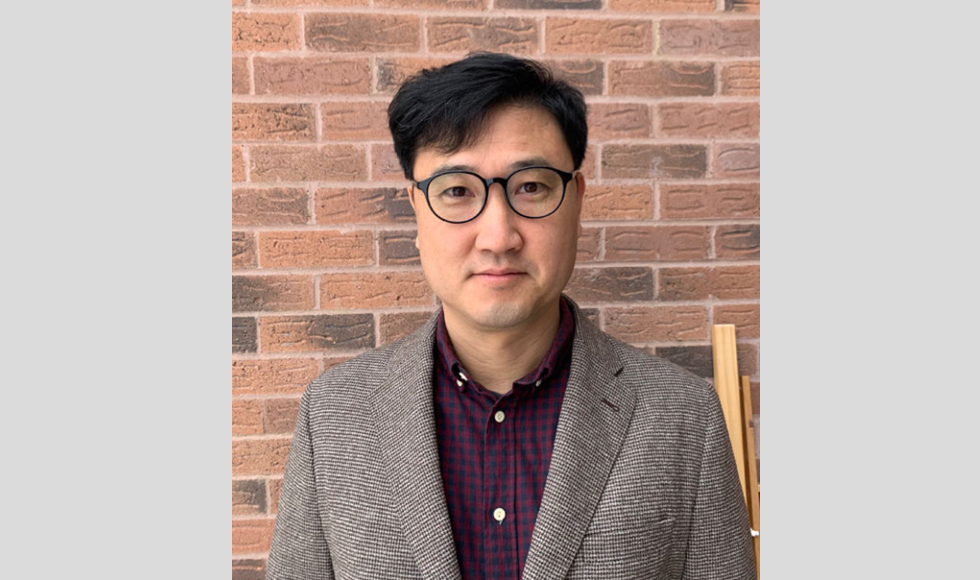Confucian Classics and ‘Sad China’: Jaeyoon Song applies a historical lens to Chinese politics

The history professor uses his study of medieval Chinese thinkers and philosophers to cast light on the country's contemporary problems.
BY Sara Laux, Faculty of Humanities
November 29, 2024
History professor Jaeyoon Song is a researcher, teacher, author, columnist and novelist.
And it may seem that he’s focused on many different things — the medieval Confucian Classics and related commentaries, modern Chinese history, and contemporary Chinese politics — but it’s all part of a single, deep interest in China: Its government, its history and its people, Song says.
The Faculty of Humanities spoke with him recently about his wide-ranging projects.
An excerpt of that interview appears below.
Can you tell me a little about your work?
I’m a historian, but I began as a philosopher — my undergraduate major was philosophy. Having engaged in philosophical inquiry into human nature for a long time, I realized that in order to study humanity I need to take an empirical approach — to discuss humanity in a more meaningful way I really had to take a close look at people’s real experiences.
I became interested medieval Chinese history because I had studied the Confucian Classics [a series of five books by Confucius consisting of the Book of Odes, the Book of Documents, the Book of Rites, and the Spring and Autumn Annals] as a philosophy major.
To gain a comprehensive understanding of the Confucian Classics, I started to look at the historical contexts in which these works became important over time — and then I realized that I needed to look at people’s actual existential experiences, rather than talking about human nature in abstract. That’s how I got into historical inquiry, and that’s what I’m doing now.
I researched the diverse exegetical traditions of the Confucian Classics, focusing on Song Dynasty China (960-1279).
Once I started working at McMaster, my research has gradually expanded to the fields of modern Chinese history and contemporary Chinese politics, and I’ve now written three books on modern China, because without understanding what’s going on in China today I can’t introduce the topic to my students in a meaningful way.
What’s your perspective, as a historian, of China’s role in the world today?
China has become so very important over time — it’s the second-largest economy in the world, but with a political system that’s very different from ours. It’s a non-democratic economic superpower — a one-party dictatorship, as written in the Chinese constitution. Separation of powers in government is not allowed, freedom of expression is limited, and yet it’s become incredibly powerful.
To come to terms with China as it is today, we need to understand how China came into being, how China arose from a “basket case” to an economic powerhouse.
In my trilogy A Sad China, I describe the history of modern China — the first volume on the initial stage of the socialist reform 1948 to 1964, the second volume on the Cultural Revolution (1964-1976), and the third on the Reform and Opening-up since 1978, respectively.
Why “Sad China”? I wanted to empathize with the painful experiences of the people — I wanted to observe the real-life experiences of the people such as the great famine and political upheavals during the Cultural Revolution.
In your current project, you’re also using the past to shed light on the present. Can you tell me about that?
I’m trying to reconstruct a political theory based on my understanding of traditional commentaries on the Confucian Classics, with which I can address the constitutional issues facing contemporary China and criticize the monolithic understanding of Confucianism promoted by the Chinese government today.
It’s a long-standing tradition in China, going back two millennia, for thinkers to articulate their political vision through commentaries on the Confucian Classics. To see this connection we should go deeply into the context of these writings.
The cumulative commentaries on the Confucian Classics have far-reaching implications for Chinese politics today.
For the past two decades, the Chinese government has tried to revive Confucianism to justify the single-party dictatorship — Xi Jinping wants to represent himself as a Confucian monarch, saying that China needs to fight the lure of Western-style liberal democracy by promoting traditional values: none other than Confucianism.
But because Xi has a wrongful understanding of the Confucian Classics, we can use the works of the great sages, who form the basis of Confucian philosophy, to beat him at his own game.
I like to challenge the accepted view that Confucianism can serve as the ideology of autocracy. In 2015, I published a book titled Traces of Grand Peace with Harvard University Press. In that book, I showed that traditional thinkers were not as simple as they’re depicted today, and that their work could, in fact, promote the idea of the separation of powers and division of government.
You don’t just write about modern China, and Confucian philosophy – you also wrote a novel, Yoshiko’s Flags, about a woman’s experiences in Korea under the Japanese occupation and then in the Korean War.
When I was teaching at the University of Tennessee, I interviewed a Korean lady who was born in the Japanese Empire and grew up in North Korea in the 1940s and 1950s.
When the Japanese Empire fell, she was then living under the North Korean government. But when the Korean War broke out, she was able to go to South Korea to live with her family, which she did for 25 years until her family came to the U.S.
It was an incredibly interesting story, and she told me her entire life’s story on the condition that I not reveal her identity. I decided to adopt a fictitious device to reconstruct everything she had told me, with a very important message — these historical experiences can never disappear.
Sometimes they might be lurking for decades, but they eventually come back.


